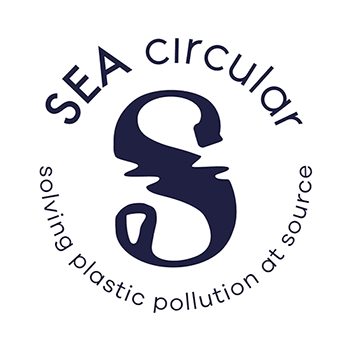
Strengthening the Informal Sector’s Role in Combatting Plastic Pollution
Bangkok, 10 October 2024
26 Sep 2024, Bangkok, Thailand: In a world grappling with the escalating crisis of plastic pollution, the session titled “Bridging Rights and Responsibilities: Tackling Plastic Pollution Together with the Informal Sector,” held on September 26, 2024, at the UN Responsible Business and Human Rights Forum, Asia Pacific, emerged as a pivotal moment for fostering meaningful dialogue on how to ensure a ‘just transition’ in the plastics sector. Organized by the UN Environment Programme (UNEP) as part of the SEA circular project, this session convened 200 participants from diverse stakeholders to delve into the urgent need for sustainable waste management practices that honor human rights in the Asia-Pacific region.
The event highlighted UNEP’s research on Extended Producer Responsibility (EPR) and its implications for the informal waste sector in six ASEAN countries, including Vietnam, Indonesia, and the Philippines. This discussion emphasized the necessity of including informal sector workers, such as waste pickers and small and medium enterprises (SMEs), in environmental decision-making. UNEP has gathered valuable insights from these groups, and the forthcoming report will provide recommendations for businesses to integrate human rights considerations into their strategies to combat plastic pollution. The session aimed to inspire businesses to adopt a human rights-based approach, fostering a sustainable and equitable future for all.
During the discussion, expert panelists highlighted that waste pickers, who are critical to waste management, often operate in hazardous conditions without legal recognition or adequate protections, making them vulnerable to exploitation.
Salisa (Yam) Traipipitsiriwat, Senior Campaigner/SEA Plastics Project Manager, Environmental Justice Foundation emphasized the importance of incorporating the diverse voices of informal waste workers in policy discussions. One of her key messages was that Extended Producer Responsibility (EPR) schemes should not only be aligned with international human rights standards but also be legally binding to ensure accountability and fairness in addressing plastic pollution.
Additionally, Vivekand Sistla, Head of R&D, Unilever Thailand discussed the concept of the right to access remedies, emphasizing the need for affected communities to seek justice and compensation for harm caused by plastic pollution.
Key Takeaways from the Event
- Understanding Human Rights Implications: Plastic pollution poses complex human rights challenges, particularly for informal waste pickers, as it undermines fundamental rights, including the right to a clean, healthy, and sustainable environment.
- Integrating Human Rights into Business Strategies: Practical guidance was provided for businesses to incorporate human rights considerations into operations and EPR schemes, emphasizing the empowerment of informal waste workers.
- Upstream solutions: Downstream solutions like recycling alone are insufficient; the informal sector must be empowered to contribute to upstream efforts to reduce plastic waste.
- Participation in decision-making: Inclusion and active participation of informal workers in environmental decision-making are crucial, with associations and cooperatives serving as tools to address human rights gaps and achieve EPR targets.
- Exploring Access to Remedies: Ensuring that communities affected by plastic pollution have access to remedies must be integrated into international legal frameworks.
- Fostering Collaborative Solutions: Partnerships among businesses, governments, and civil society are essential for developing comprehensive and effective solutions to the plastic crisis.
The session concluded with a powerful call to action, urging all stakeholders to implement concrete steps toward integrating human rights into plastic pollution management strategies. By acknowledging the vital role of the informal sector and amplifying their voices, we can pave the way for a more sustainable and equitable future.
Written By: Elin Gidloef and Kamal Najmus Salehin, UNEP ROAP
About SEA circular project
The SEA circular project – Reducing marine litter by addressing the management of the plastic value chain in Southeast Asia is implemented by the UNEP Regional Office for Asia and the Pacific and the Coordinating Body on the Seas of East Asia (COBSEA), with funding support from the Government of Sweden. SEA circular aims to reduce and prevent plastic pollution and its impact by working with governments, businesses, civil society, academia, and international partners. The initiative promotes market-based solutions and enabling policies to transform plastic value-chain management, strengthens the science base for informed decision making, creates outreach and awareness. The project leverages COBSEA’s regional mechanism to tackle the transboundary challenge of marine litter in a harmonized manner.
Contact Us
Website: www.sea-circular.org
Email: sea-circular@un.org
news

